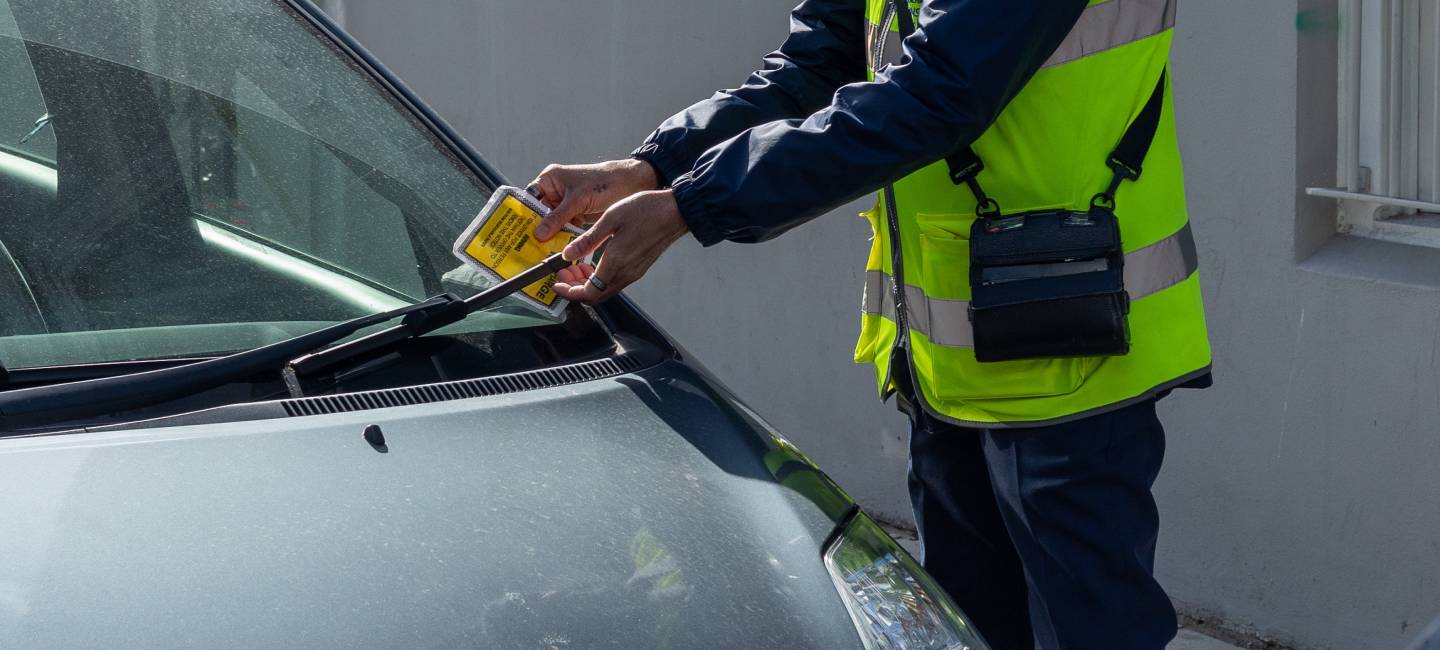
This article is for general guidance only and is not financial or professional advice. Any links are for your own information, and do not constitute any form of recommendation by Saga. You should not solely rely on this information to make any decisions, and consider seeking independent professional advice. All figures and information in this article are correct at the time of publishing, but laws, entitlements, tax treatments and allowances may change in the future.
Is there anything more annoying than parking your car and popping to the shops for two minutes to return to that yellow ‘envelope of doom’ stuck to your windscreen? Yes, the frustration of being given a ticket when you’ve done nothing wrong.
It’s easy – but costly – to pay a parking fine and forget about it, particularly if you’re offered the chance to do it at a reduced price. But, according to Which?, two-thirds of appeals are successful.
Read on to discover the best ways to win that parking ticket appeal.
What’s on this page?
You might receive a ticket for mistakes such as parking without paying, straying outside a designated parking bay or parking on a double yellow line. Parking ticket expert Barrie Segal, who runs Appealnow, explains that there are two different types of ticket that might sound the same.
“There’s a penalty charge notice, commonly called PCN, which is issued by a local authority. Private parking companies call their tickets a parking charge notice, which sounds similar,” he says.
And it’s important to distinguish between the two as there are different ways of appealing local authorities’ PCNs and private parking companies’ tickets.
Lisa Webb, Which? consumer law expert, explains: “If you’ve received a parking ticket from a council, the police or TFL [Transport for London] you’ll need to follow that authority’s process for appealing parking fines.If the appeal is accepted then the fine will be cancelled. However, if it is rejected then you will need to decide whether to appeal again to an independent adjudicator,” she says.
“Unlike official public bodies, private parking companies can’t fine you. Instead they have to issue a notice that acts like an invoice. Failing to pay the invoice can result in the company pursuing you through the court for unpaid charges. To appeal these, you’ll need to follow the company’s internal appeals process. If this appeal is rejected, then you should check if the company is a member of an accredited trade association and to follow that formal appeals process.”
Unfortunately feeling hard done by is not a reason to appeal: to successfully get your charge overturned you will need to prove why the ticket shouldn’t have been issued in the first place.
Citizens Advice has a comprehensive list of reasons why you could appeal. This includes
“The main appeal point is proving no contravention took place, which covers a multitude of situations,” says Segal. “You might have paid for your ticket but it hasn’t been recorded by the council or parking company (perhaps due to an app glitch or machine fault). Or you parked in a bay and it was free, but you were issued with a ticket.”
He adds: “Check a local authority PCN carefully. Is the location and postcode correct? Have they made it clear the penalty charge must be paid within 28 days?”

Webb says: “People might want to appeal an unfair ticket for a range of reasons – for example if it wasn’t your car, you’d broken down, or if the parking signs were unclear. There are different methods for appealing depending on who issued the notice.
“Gather as much supporting evidence as possible to help your appeal – such as any photos of broken parking meters or unclear signs. Explain your position clearly and give details as to why you think the ticket is unfair.”
Whether it’s a local authority or private ticket, always appeal in writing and don’t stray from the facts.
You’re likely to be angry, but getting emotional will get you nowhere. “Be respectful. Never use inflammatory language, stay calm and never accuse the parking attendant of being an idiot,” says Segal. “I always recommend you appeal by email if you can. Some councils will only let you appeal via their website, so it’s important to keep a copy of what you’ve sent. Draft it in a word or text document and copy and paste it into the website.”
Include times, dates and any supporting photographs you think might help your case. Helen Dewdney, Consumer expert at The Complaining Cow, advises: “Keep evidence of payment. Screenshot a payment acknowledgement, bank transfer or credit card statement.” Which? has templated letters you can use to appeal a council PCN and also a private company’s ticket.
For a council PCN, make your initial challenge (often called an informal challenge) to the authority within 28 days of the notice date. If you do this within 14 days, the 50% discount period is usually frozen while they consider it.
If your informal challenge is rejected, you’ll receive a ‘Notice to Owner’. You then have 28 days to make a formal representation (appeal). If that is rejected, you can escalate to the independent adjudicator.
Rules for private parking – at supermarkets, shopping centres, entertainment complexes or any other private land – can sometimes be unclear. Always check the sign and bear in mind if you drive in, decide not to park because there’s no way to pay or found the app too fiddly, you might have already been recorded on an ANPR (Automatic Number Plate Recognition) camera as you entered.
Even if you drive in, don’t park or pay, and leave promptly, you might receive a ticket. However, the British Parking Association’s code of practice requires members to allow a reasonable ‘grace period’ for drivers to enter, read signs, and leave if they choose not to park. If you received a ticket in this scenario, citing the BPA code of practice regarding grace periods could be grounds for appeal. If you lose your appeal and the company is a BPA member in England and Wales, you could try Parking on Private Land Appeals (POPLA).
For local authority parking tickets, you can appeal to the independent adjudicator: either London Tribunals or Traffic Penalty Tribunals for the rest of England and Wales. (Or see details for penalty charge notices for Scotland and for Northern Ireland.)
If you’re offered a 50% discount for paying your parking ticket within 14 days, you might be panicked into handing over the money to avoid a bigger fine further down the line. However, Citizens Advice warns that if you pay up quickly you are effectively admitting that the ticket was correctly issued.
Segal agrees. “Once you’ve paid, the council or company will say: ‘Fine, we accept your payment.’ But 99 times out of 100, if you appeal within 14 days and you’re turned down, they’ll still offer you the discount,” he says. This is particularly likely to be the case with council parking fines, while private companies can vary.
The RAC points out that wheel clamping on private land is illegal and if a private parking company demands a penalty on the spot you should contact the police.
There are parking ticket scams where you’ll receive a text message notifying you of a parking ticket. Remember local authorities and private parking companies don’t issue PCNs or parking charge notices by text, so ignore it and report it.


Outsmart difficult retailers when buying online by brushing up on the regulations.

Learn how to spot an energy scam and keep your money safe.

Find out the warning signs and follow these tips to avoid being conned.